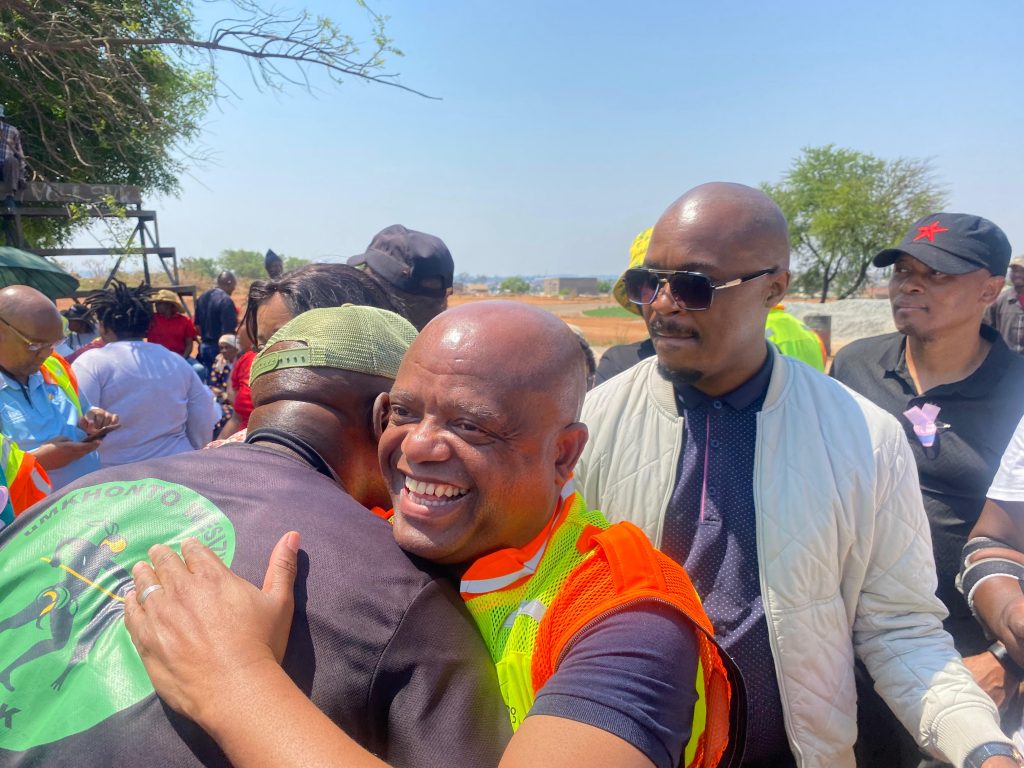The City of Johannesburg has expressed satisfaction with the progress made through Mayor Dada Morero’s High Impact Service Delivery Drive, a hands-on initiative aimed at addressing service backlogs across the city. The programme involves visiting troubled communities and resolving issues on the spot.
This week, Mayor Morero took the initiative to Ebony Park in Midrand, where he tackled challenges such as damaged roads and persistent water supply problems.
In line with the programme’s approach, Morero was accompanied by various city departments and municipal agencies tasked with addressing smaller but urgent issues, including the filling of potholes and repairs to local infrastructure.
The mayor said the city’s immediate priority in dealing with water problems is to repair burst pipes and dismantle illegal water connections in order to reduce wastage.
“Part of the issues we’re dealing with is consumption. We know that our consumption is higher than what we’ve been apportioned by rainfall. This particular reservoir has one of the highest consumption rates, and we need to manage that,” said Morero.
“We’ve engaged the community to explain the challenges. The biggest problems raised are illegal connections and leaks in private pipes. We’re addressing these by fixing leaks and working with the JMPD and other stakeholders to deal with illegal connections. The city also has an ongoing programme for pipe replacement, leak detection, and repair.”
Residents welcomed the mayor’s visit and praised the city for noticeable improvements in service delivery. However, some expressed concern over abandoned or slow-moving infrastructure projects.
One young mother pointed to a sports stadium under construction in the area:
“This exact stadium we’re standing in has been under construction for ten years. The contractor keeps stopping, saying there’s no funding. We need the mayor to release the funds because, right now, it’s just ruins. Our kids need this place to keep them off the streets,” she said.
Several elderly residents also appealed to the mayor to complete the sports facility, which they say is vital for their community health programmes.
“I’m 82, and there are many older than me who take part in these activities,” said Basil Nombewu, who organises short marathons for seniors in Ebony Park. “We need this pitch completed so we can have a safe place to exercise and practice.”
Another resident warned that the incomplete stadium and nearby abandoned road construction could become crime hotspots if not addressed soon.
“If the stadium isn’t finished, it will attract criminals who’ll terrorise residents. I’m really worried about what might happen here in December if nothing changes,” he said.
Mayor Morero’s initiative has already yielded visible results elsewhere in the city — including the conversion of major illegal dumping sites in the Johannesburg CBD and surrounding areas into community parks.
In the inner city, the municipality has also cleared the notorious Small Street second-hand clothing market, previously dominated by informal traders and plagued by filth, as part of its broader effort to restore cleanliness and order to Johannesburg.



